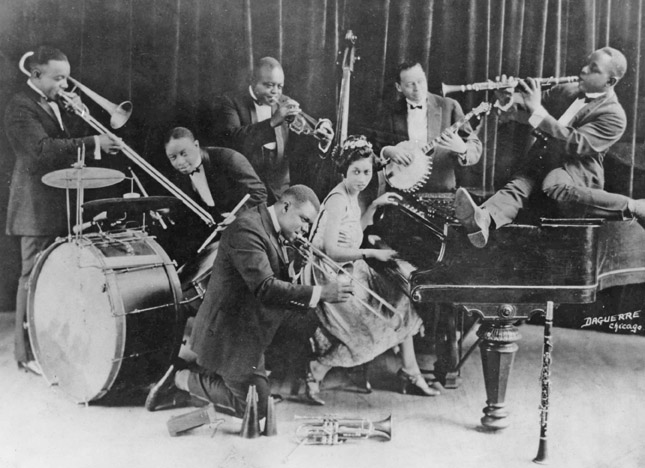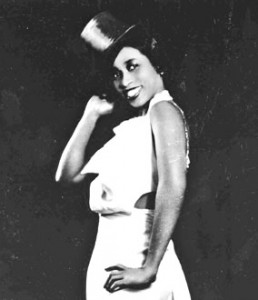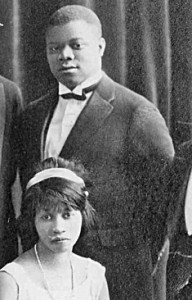Louis Armstrong and Lil Hardin were as different as two people could be. She was outgoing and sophisticated. He was a country bumpkin. She was ambitious and had a good head for business. He didn’t care about making money. All he wanted to do was play his horn.
She could see him as a star with his name in lights. He thought she was "just plain crazy." But by the time she’d convinced him that she was right, they’d changed the face of jazz. Who knows if Louis Armstrong’s genius would have touched the world as it did without the tireless effort and steadfast vision of Lil Hardin Armstrong.
On this week's Riverwalk Jazz broadcast we hear Lil’s story of her life with Louis in rare interviews first released by Riverside Records in the 1950s. Lil tells behind-the-scenes stories of taking King Oliver and Louis Armstrong out for a drive in her new Hudson automobile; and about how she began her 'makeover' of the man she loved with an argument about his hat. Trumpeters Duke Heitger and Bob Barnard join The Jim Cullum Jazz Band to perform pieces composed by Armstrong and Armstrong.

King Oliver's Creole Jazz Band, Chicago c. 1923 L-R: Honore Dutrey, trombone; Baby Dodd, drums; King Oliver, cornet; Louis Armstrong (center), cornet; Lil Hardin, piano; Bill Johnson, banjo; Johnny Dodds, clarinet. Photo courtesy The Frank Driggs Collection.
Working in a scene dominated by men, Lil Hardin was one of the most sought-after jazz pianists on the South Side of Chicago in the early 20s. She was playing piano in King Oliver's Creole Orchestra when Oliver sent for Louis to move up from New Orleans and play second cornet in his ground-breaking jazz band.
It wasn’t love at first sight for Lil. She only started to notice Louis after King Oliver pointed out that Louis was the better player of the two. Lil and Louis tied the knot on February 5, 1924 and their honeymoon was spent on tour with Oliver's band.
BONUS AUDIO CONTENT
Lil Hardin Armstrong is credited with persuading Louis to pursue a solo career, leave King Oliver's Creole Jazz Band, and join Fletcher Henderson's landmark group at the Roseland Ballroom in New York.
Lil was a major contributor to Louis Armstrong's Hot Five and Hot Seven recordings. She played piano, sang occasionally, and composed several major tunes, including "Struttin' with Some Barbecue" and "My Heart."
Night after night Louis Armstrong was in the spotlight, entertaining bigger and bigger crowds with his endless charm and playing his heart out on trumpet. He was swept along on the tide of his enormous talent. Lil Hardin always had her feet on the ground, calculating their next move. She said she often imagined herself standing out of sight, at the bottom of a ladder, holding it steady for Louis as he rose to stardom.
Though their marriage ended in 1931 they remained friends—their partnership reflected forever in the body of work they created together.
Photo credit for Home Page: Lil Hardin Photo courtesy The Frank Driggs Collection.
https://rwj-a.stanford.edu/bonus-content/lil-hardin-interview-clips
Text based on Riverwalk Jazz script by Margaret Moos Pick ©2012



